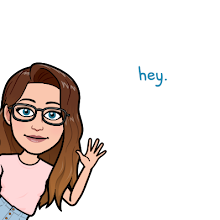Almost Astronauts: 13 Women Who Dared to Dream
by Tanya Lee Stone
Bibliography:
Stone, Tanya Lee. Almost Astronauts: 13 Women Who Dared to Dream. Massachusetts: Candlewick Press, 2009. ISBN: 9780763636111
Plot Summary: The "Mercury 13" were a group of women who were determined to find out just what it takes to be an astronaut. Of course, when NASA was established in 1958 there were two main and strict qualifications; you had to be white, and you had to be a man. This story is about a group of thirteen women who knew that they were just as strong as any man, and challenged the government when they were told that they could not go to space. Despite these women never making it to space as they dreamed to, they were still a wonderful example that empowered young women to take their place as pilots and commanders.
Critical Analysis:
As I have gotten older, I have had a growing interest in reading nonfiction and informational texts, especially over topics that interest me. When looking at the module list, Almost Astronauts stood out to me before anything else. I find learning about events that have effected women's rights very interesting, and I could tell that this book would do just that. As I began to read, I was very intrigued by all of the facts that were provided, but also by the dialogue included. This was not expected, as it is not something that is usually apparent in informational books. That is where the concern of accuracy came into play, and so I made sure to read the included Author's Note as well. In that information, Stone explained the means she went through to get the facts for her book. That information stated that "the course of [her] research let [her] to many books, articles, scientific papers, audio recordings, and videotapes" (Stone, p. 120). Of course, all of these sources tend to be used for all informational texts, so I was not yet convinced. However, Stone went on to say that she spoke with many of the Mercury 13 women herself, some through phone calls and emails, but she also met a group of them and spent a weekend together where she was given more first hand accounts. Therefore, the information instantly becomes much more accurate. There was a large number of sources included, and it was even broken up by chapter and page numbers, which I found very useful.
The organization and design of the book are both very good, and successfully support the information and purpose of the text. The book is written in chapters with interesting titles that make the reader want to continue reading. Throughout the chapter, there is a great deal of subtitles, some of which are specific dates of relevant days and events. The book follows chronological order, which makes it much easier to follow the story and understand how the events occurred in history. Throughout the chapters, there is also an abundance of illustrations, and they are all relevant to the information being discussed at that point in the text. Each picture also has a caption to explain specifically what it is. The pictures and interesting and clear, and certainly add to the overall appeal of the text. As far as organization goes, there is also a table of contents, index, and list of sources.
The author includes the right amount of information in the book without it being overwhelming, but also without "dumbing down" the information just because the book is intended for young adults. The vocabulary is appropriate, and it includes the terminology that is important to the topics discussed, which could lead students to do more research if they are not sure of terms provided. The tone makes it clear that Stone is interested in what she is writing, and also has a motivating and empowering style to it. Despite the negatives that are discussed due to the historical situations, the tone continues to remain positive, which I think is important for young readers. Stone presented the information in an interesting and engaging way.
As I have gotten older, I have had a growing interest in reading nonfiction and informational texts, especially over topics that interest me. When looking at the module list, Almost Astronauts stood out to me before anything else. I find learning about events that have effected women's rights very interesting, and I could tell that this book would do just that. As I began to read, I was very intrigued by all of the facts that were provided, but also by the dialogue included. This was not expected, as it is not something that is usually apparent in informational books. That is where the concern of accuracy came into play, and so I made sure to read the included Author's Note as well. In that information, Stone explained the means she went through to get the facts for her book. That information stated that "the course of [her] research let [her] to many books, articles, scientific papers, audio recordings, and videotapes" (Stone, p. 120). Of course, all of these sources tend to be used for all informational texts, so I was not yet convinced. However, Stone went on to say that she spoke with many of the Mercury 13 women herself, some through phone calls and emails, but she also met a group of them and spent a weekend together where she was given more first hand accounts. Therefore, the information instantly becomes much more accurate. There was a large number of sources included, and it was even broken up by chapter and page numbers, which I found very useful.
The organization and design of the book are both very good, and successfully support the information and purpose of the text. The book is written in chapters with interesting titles that make the reader want to continue reading. Throughout the chapter, there is a great deal of subtitles, some of which are specific dates of relevant days and events. The book follows chronological order, which makes it much easier to follow the story and understand how the events occurred in history. Throughout the chapters, there is also an abundance of illustrations, and they are all relevant to the information being discussed at that point in the text. Each picture also has a caption to explain specifically what it is. The pictures and interesting and clear, and certainly add to the overall appeal of the text. As far as organization goes, there is also a table of contents, index, and list of sources.
The author includes the right amount of information in the book without it being overwhelming, but also without "dumbing down" the information just because the book is intended for young adults. The vocabulary is appropriate, and it includes the terminology that is important to the topics discussed, which could lead students to do more research if they are not sure of terms provided. The tone makes it clear that Stone is interested in what she is writing, and also has a motivating and empowering style to it. Despite the negatives that are discussed due to the historical situations, the tone continues to remain positive, which I think is important for young readers. Stone presented the information in an interesting and engaging way.
Review Excerpts:
From School Library Journal: "This appealing Sibert Award winner, notable for the author’s strong point of view, explores the reasons and biases behind the decision."
From Publisher's Weekly: "A gripping narrative surfaces in Stone's text, as the women are repeatedly thwarted by NASA, discriminated against and patronized by society. "
Connections:
-One of the best ways I have already used this book in my classroom is to connect it back to our discussions over women's rights and how things have changed since the past, but how some things are still unfortunately close to the same.
-Other books that would be good to read as paired texts could include Team Moon: How 400,000 People Landed Apollo 11 on the Moon by Catherine Thimmesh and Moonshot: The Flight of Apollo 11 by Brian Floca.

















No comments:
Post a Comment